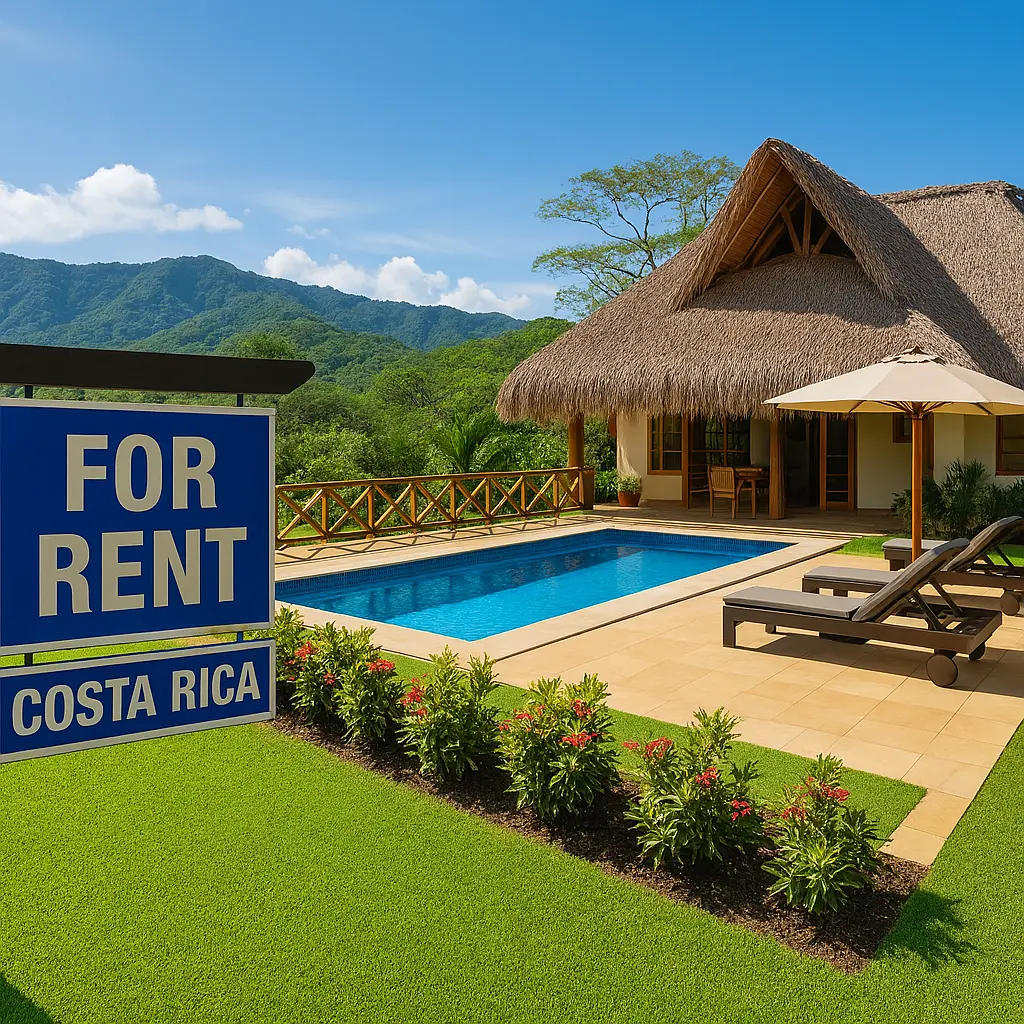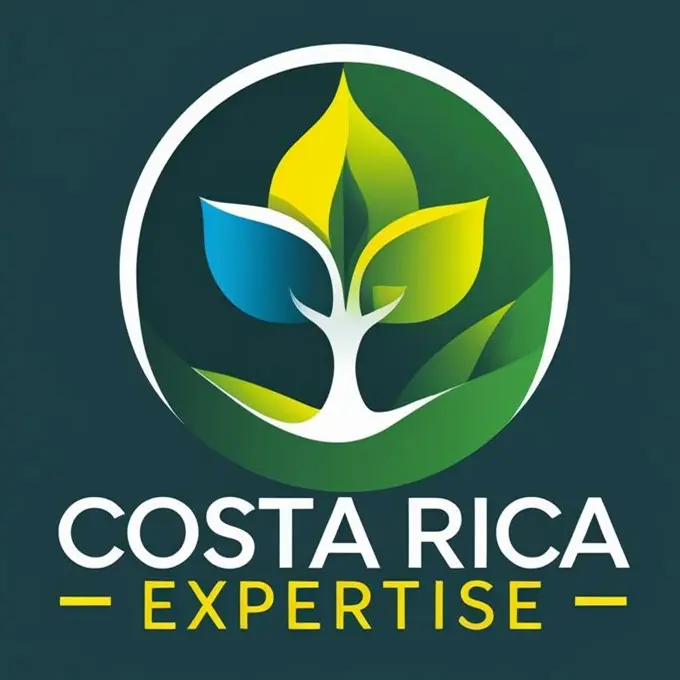Navigating Costa Rica's Tax Landscape for Short-Term Rentals: A Comprehensive Guide for Property Owners
Renting your Costa Rica property on Airbnb? Hacienda now gets your income data directly. Our 2025 guide details mandatory registration, IVA, and income tax rules for expats to ensure full compliance, issue electronic invoices, and avoid costly fines.

If you're a foreign resident in Costa Rica leveraging the booming tourism market by renting out your property on platforms like Airbnb, the time for full tax compliance is now. Hacienda, Costa Rica's tax authority, is intensifying efforts to ensure digital rental income is fully declared. Understanding and meeting these obligations is no longer optional; it's essential for the continued legality, success, and protection of your short-term rental business.
Let's delve into what you need to know, drawing on the latest insights and expert advice, to ensure your Costa Rica short-term rental business operates squarely within the bounds of the law.
Step One: Mandatory Registration of Your Costa Rica Rental Property!
This is the absolute cornerstone of Costa Rica tax compliance. According to tax expert Heidi, an experienced accountant and "super host" in the short-term rental space, the first, and most critical step is to officially register your rental activity with Hacienda. Failing to do so carries a substantial fine of ₡1.3 million colones (approximately $2,500 USD).
The law specifically classifies your rental activity as "Alquileres" (rentals), which has significant implications for how you are taxed. The good news is that the registration process itself is straightforward, primarily requiring basic information about you and your property. Do not delay this – it is the foundational requirement for operating any rental-related business activity in Costa Rica.
Step Two: ICT Registration – Another Mandatory Requirement!
Beyond Hacienda, the Costa Rican Institute of Tourism (ICT) mandates registration for all tourism-related businesses, including short-term rentals. This is not just a formality; it's a key part of your legal compliance in Costa Rica. Registering with the ICT offers several benefits, including official authorization to operate, access to tourism promotion initiatives, and the potential to obtain a Certificate for Sustainable Tourism (CST). Often, this registration is also a prerequisite for obtaining municipal operating permits. Ensure you complete the electronic registration form available on the ICT’s official website.
Step Three: Worker Risk Insurance (INS Póliza de Riesgos del Trabajador) – A Crucial Safety Net
Even if you don't directly employ staff, all businesses, including vacation rentals, are typically required to secure worker risk insurance through the National Insurance Institute (INS). This policy covers workplace injuries and is regularly a prerequisite for obtaining municipal operating permits. Don't overlook this vital layer of protection and compliance.
Step Four: Third-Party Liability Insurance – Protecting Against the Unexpected
While not always explicitly mandated by law for all short-term rentals, obtaining third-party liability insurance is a critical step for comprehensive protection. This type of insurance protects you, the property owner, from financial losses in case a guest or a third party is injured on your property or their belongings are damaged due to your negligence. It's a wise investment in peace of mind and long-term financial security.
Step Five: Hacienda Knows: Digital Platforms Are Sharing Your Data!
This represents a monumental shift for Costa Rica property owners. Both Booking.com and Airbnb are now directly sharing detailed income data with Hacienda.
"The tax ministry receives income data quarterly, and will be able to see what individuals earned," warns Heidi. The consequences of non-compliance are severe: expect retrospective audits and potential back taxes for up to ten years.
Step Six: Municipal Operating Permits (Patentes Municipales)
Some municipalities are increasingly requiring local operating permits for short-term rentals. Regulations vary significantly across the country, so it is essential to check directly with your local municipality for specific requirements in your area.
Step Seven: IVA Explained – Your Value Added Tax (VAT) Duties
- Long-term rentals (one month or more): Generally exempt from IVA.
- Short-term rentals (less than 30 days): Subject to IVA at a rate of 13%.
You must collect IVA from guests, credit any IVA you paid on related business expenses, and remit the difference to Hacienda monthly.
Crucial Tip: If you do not explicitly separate the IVA from the base price on platforms like Airbnb, the entire listed price will be assumed to INCLUDE the IVA.
Step Eight: Income Tax – "Renta de Capital" for Rental Income
Income from short-term rentals typically falls under 'Renta de Capital' (Capital Income) and requires filing Form D-125 monthly.
- Tax Rate: A flat 15%.
- Automatic Deduction: The law allows a 15% deduction for expenses (no receipts needed).
- Effective Tax Rate: This results in a 12.75% tax on your total gross rental income.
Consult a tax professional to see if you qualify for other tax structures like "Renta de Utilidades," which may be more advantageous.
Step Nine: Electronic Invoices – Your Digital Receipts
Every rental income received requires an electronic invoice (factura electrónica). Ideally, include the guest's full name and passport number. A general electronic ticket (tiquete electrónico) is a compliant alternative if you lack full details.
Heidi's Tip: Cleaning fees are part of the lodging service – do not invoice them separately under a different activity code!
The Airbnb Payout Challenge (Especially for Property Managers)
A key concern for Costa Rican property managers is that Airbnb's system doesn't easily split income or issue invoices for multiple owners when a single account receives all payments. Hosts should monitor updates from host associations (like ASOHOST) for evolving solutions.
Who Pays What? Ownership & Management Structures
The tax obligations fall on whoever is registered with Hacienda as the recipient of the income.
- Direct Owner/Lister: You are responsible.
- Property Manager Receives Payments: They are generally responsible.
- Held in a Corporation (Sociedad): The corporation must register and file its own declarations.
Formalize all relationships with clear legal contracts to define tax responsibilities.
Beyond Taxes: Additional Key Considerations
- "Hotel" Terminology: Avoid using the term "hotel" in listings unless you meet the specific legal criteria.
- Income Origin: If the property is in Costa Rica, the income is Costa Rican-source and taxable here, regardless of how you are paid.
- Join the Community: Consider joining ASOHOST (the Association of Short-Term Rental Hosts) for support and information.
Your Action Plan: Don't Delay on Costa Rica Tax Compliance!
- Register NOW: Your most critical step is to register your rental activity with Hacienda.
- Determine Your Tax Regime: Consult a professional to find the best structure for you.
- Update Listings: Configure your listings to properly account for IVA.
- Maintain Detailed Records: Keep meticulous records of all income and expenses.
- Issue Electronic Invoices: Implement a system to issue an electronic invoice for every transaction.
- Formalize Agreements: Ensure contracts with managers or corporations clearly define tax duties.
- Seek Professional Advice: A qualified Costa Rican accountant is essential for navigating these complex rules and avoiding costly penalties.
¡Pura Vida and Happy Hosting!
